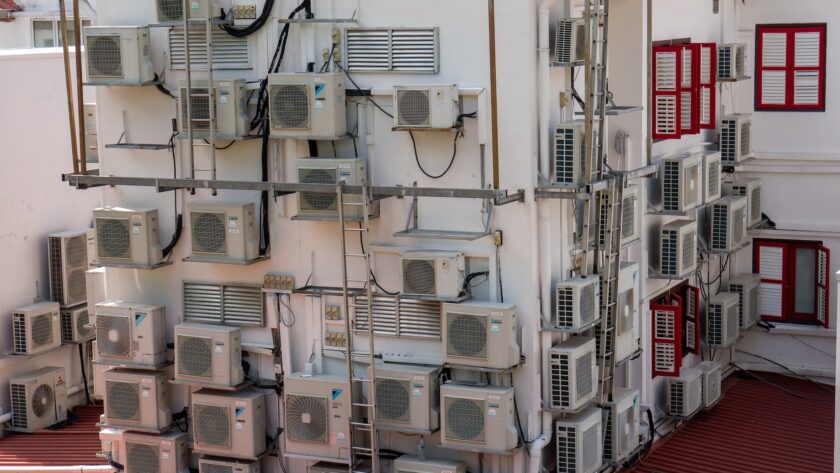As a homeowner, you must have a functioning air conditioning system. Not only does this keep you comfortable during the hotter months, but it also keeps your energy costs low.
But like all mechanical equipment, your AC is prone to wear and tear as it goes through regular use. That’s why scheduling routine maintenance is essential to keep your unit running efficiently.
Reduces Indoor Humidity
Many people think humidity is a problem only when it’s hot, but the truth is that humidity can be just as uncomfortable and harmful to your health when it’s cold. High indoor humidity can cause respiratory problems, skin irritation, and mold growth.
Keeping your home’s humidity within an ideal range of 30% to 50% will reduce your risk of these health problems and ensure a comfortable living environment. If your home is too humid, consider using a dehumidifier that works in conjunction with your AC to keep your home at the proper level of moisture.
Another important way to reduce your home’s indoor humidity is to ensure your ductwork isn’t leaking air. Leaks in ductwork can lead to 30% or more loss of conditioned air, increasing your energy bills and affecting indoor air quality.
If you don’t have your ductwork inspected regularly, your home may be in danger of becoming too humid, which can seriously impact your family’s health and comfort. A professional AC repair in Dallas Texas service can ensure your ductwork is clean and free of leaks, which will help to keep your home a healthy place to live. The added benefit is that a properly maintained home is also more attractive to buyers when it’s time to sell.
Reduces Indoor Pollutants
While you might think that outdoor air pollution gets all the attention, indoor pollutants are just as big of a problem. Studies have shown that the indoor air quality in most homes can be two to five times more polluted than outdoors.
Indoor pollutants include mold, bacteria, tobacco smoke, pet dander, and dust mites. These pollutants are all known irritants and can trigger allergies, asthma, and other respiratory conditions.
The EPA estimates that indoor air pollution is responsible for about 40 percent of all illnesses in the U.S. Long-term exposure can also increase your risk of developing heart disease and cancer.
There are a few ways you can improve the air quality in your home and decrease your risks of illness. These include cleaning your home regularly, changing your HVAC filters, and buying air purification systems.
Gases: VOC off-gassing, radon, and carbon monoxide are common gases that can cause respiratory irritation, headaches, nausea, and other problems. Radon is the second leading cause of lung cancer, and carbon monoxide can be fatal.
Pet dander: Animal particles can enter the home through poor ventilation and sealing. If you have pets, a good vacuum cleaner with a HEPA filter can help remove particles from the air and reduce the likelihood of allergic reactions.
Reduces Noise
Air conditioning is an essential part of a comfortable home during the summer. It’s also a great way to lower energy bills. However, it can also be noisy and disruptive if not correctly maintained.
If you hear strange noises from your air conditioner, you should have a professional check it out to determine what’s causing the issue. This technician can determine if it’s a problem with your thermostat settings or a faulty wire.
They can also inspect the unit for any damage or clogs causing the noise. They can also clear drains and change filters to ensure your system runs as efficiently.
Another way to reduce HVAC noise is to install sound barriers. These barriers are usually made from insulation materials that absorb sound.
These sound barriers are cost-effective in reducing air conditioner noise without affecting efficiency or performance. They are usually installed around the compressor of an AC unit to dampen the noise.
A sound barrier should be as tall as your AC unit to prevent noise from traveling into the house. Alternatively, you can plant vegetation that will act as a natural noise barrier, reducing noise in your backyard.
Tactfully placed wood fencing can also be used to block noise. Ensure all barriers are at least 2 feet away from outdoor AC units.
Increases Home Value
If you are considering putting your home on the market, plenty of upgrades and improvements can add value. These include a new kitchen or bathroom, an improved landscaping scheme, or a remodeled basement.
Regarding resale, a newer and more efficient HVAC system can be a significant selling point for buyers. This is especially true if the unit is energy-efficient and environmentally friendly.
Another thing to consider when assessing a potential upgrade is the cost of labor and replacement parts. A good AC repair technician should be able to diagnose the problem and offer a cost-effective solution.
The HVAC system is critical to your home’s comfort, so any issues should be addressed as soon as possible. The benefits of scheduling regular maintenance include reducing energy bills, avoiding costly emergencies, and maintaining your unit’s lifespan.




